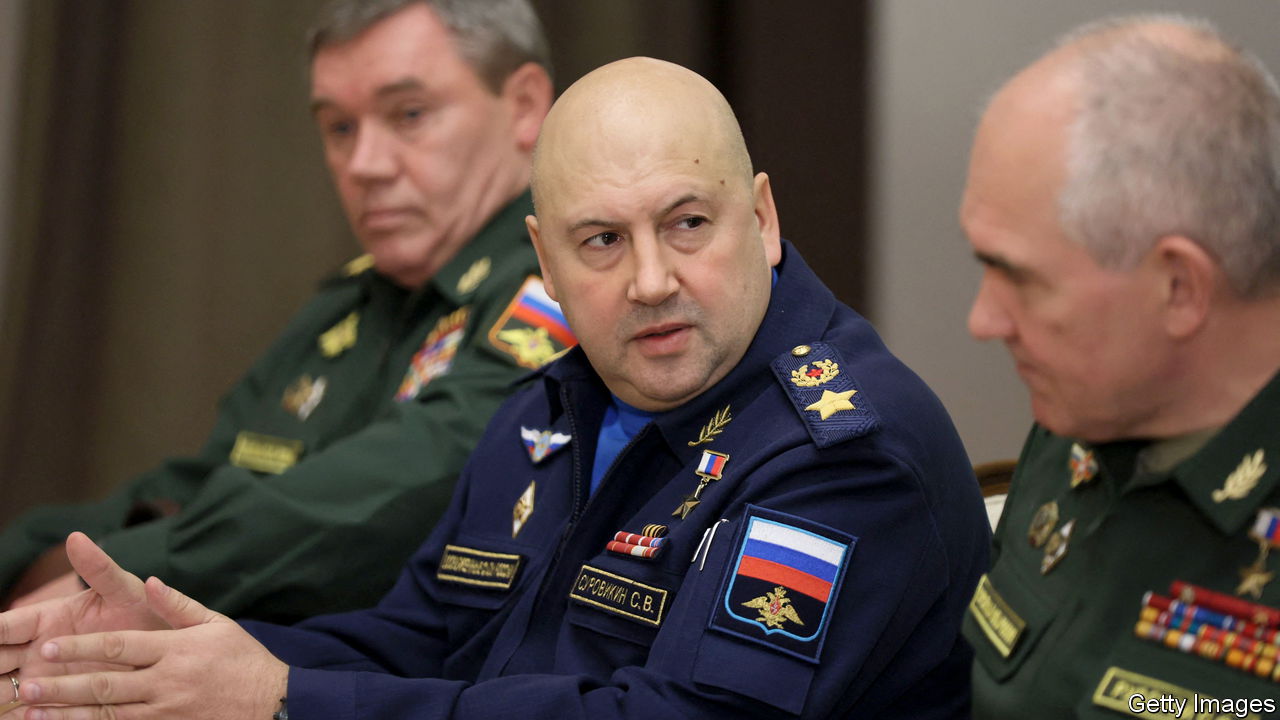- The Moscow Times Russian-language service and a military blogger reported Surovikin’s arrest over links to the Wagner mercenary force uprising.
Russian authorities have reportedly detained General Sergei Surovikin, the deputy commander of Russia’s military operations in Ukraine, amid a reported purge of military officials following the short-lived rebellion by Wagner mercenary forces, according to sources cited by the Moscow Times newspaper and a Russian military blogger.
Surovikin, nicknamed “General Armageddon” by the Russian media for his reputed ruthlessness, is a veteran of Russia’s wars in Chechnya and Syria who has been decorated by Russian President Vladimir Putin.
Citing two sources close to Russia’s Defence Ministry, the Russian-language service of The Moscow Times reported on Wednesday that Surovikin was arrested due to what one of the unnamed sources said was choosing Wagner chief Yevgeny “Prigozhin’s side during the uprising”.
A Russian military blogger, Vladimir Romanov, also reported Surovikin’s arrest on Wednesday, according to the Moscow Times, while the Washington, DC-based think tank Institute for the Study of War (ISW) reported another Russian source as claiming that military “affiliates” of Surovikin had been “accused of complicity in the rebellion”.
Russia’s Defence Ministry has yet to comment on the reports of Surovikin’s detention, the newspaper said.
The ISW reported on Wednesday that a prominent Russian military blogging site had claimed that a “large-scale purge” of the Russian military command was under way following the attempt by Wagner forces to enter Moscow and apprehend the country’s senior military leaders.
Russia’s Ministry of Defence is undergoing what Rybar, a pro-Kremlin military analysis channel on Telegram, described as a “crash test” for loyalty amid apparent “indecisiveness” by some in the Russian military command when it came to crushing the Wagner mutiny and their “support” for the private mercenary force, the ISW reported.
Rybar said the uprising by the Wagner force had “become a pretext for a massive purge in the ranks of the Russian Armed Forces”.
“If Russian authorities did arrest Surovikin then the Kremlin will likely use Surovikin and his affiliates as scapegoats to publicly explain why the Russian military and Russian internal security apparatuses responded poorly to the rebellion and to justify a potential overhaul of the Russian military leadership,” the ISW wrote.
“ISW cannot confirm any of these speculations about the command changes at this time, but it is evident that the armed rebellion is continuing to have substantial ramifications in the information space.”
‘A lot of speculation’: Peskov
The Reuters news agency cited three United States officials on Wednesday as saying that Surovikin was known to be sympathetic to the Wagner rebellion but it was unclear if he actively supported it.
Surovikin had been in support of Prigozhin but Western intelligence did not know with certainty if he had helped the rebellion in any way. As the uprising unfolded, he had publicly urged Wagner fighters to return to their bases on Saturday, Reuters reported.
The New York Times also reported that Surovikin had advance knowledge that Prigozhin was planning a rebellion and that Russian authorities were checking if he was complicit.
The Kremlin, asked on Wednesday about the Times report, said there would be “a lot of speculation” in the aftermath of the Wagner mutiny, which saw mercenaries reportedly come to within 200km (124 miles) of Moscow.
“There is now a lot of different speculation and gossip surrounding these events,” Kremlin spokesperson Dmitry Peskov said on Wednesday, according to Russian news agencies.
“I think that’s an example of that,” he said, dismissing the Times report.
The Russian army and the people “all stood by the President (Vladimir Putin) during the uprising”, Peskov added.
Belarusian President Alexander Lukashenko confirmed on Tuesday that the Wagner boss, Prigozhin, had arrived in the country as part of a deal he brokered and which narrowly prevented Wagner mercenaries from marching into Moscow. Wagner fighters have been offered an abandoned military site where they can “put their tents while thinking what to do next”, Lukashenko said.
Putin weakened
Germany’s Chancellor Olaf Scholz said on Wednesday the failed mutiny had weakened Putin but it was unclear if it would make the Kremlin any more likely to withdraw its troops from Ukraine.
“I do believe he is weakened as this shows that the autocratic power structures have cracks in them and he is not as firmly in the saddle as he always asserts,” Scholz said in an hour-long interview with German broadcaster ARD.
Scholz said he did not want to participate in speculation about how long Putin would likely remain in office, saying the West’s aim in supporting Ukraine was to help it defend itself, not to bring about regime change in Russia.
Asked if at any point on Saturday he had hoped the insurrection by the Wagner mercenaries was the end of Putin’s rule, he said it would have made no sense as it was unclear if what would come after Putin would be better.
“The Wagner troops are a military unit that is acting very aggressively all over the world, and very concretely also in Russia’s war against Ukraine,” Scholz said.
Source: AL JAZEERA AND NEWS AGENCIES






